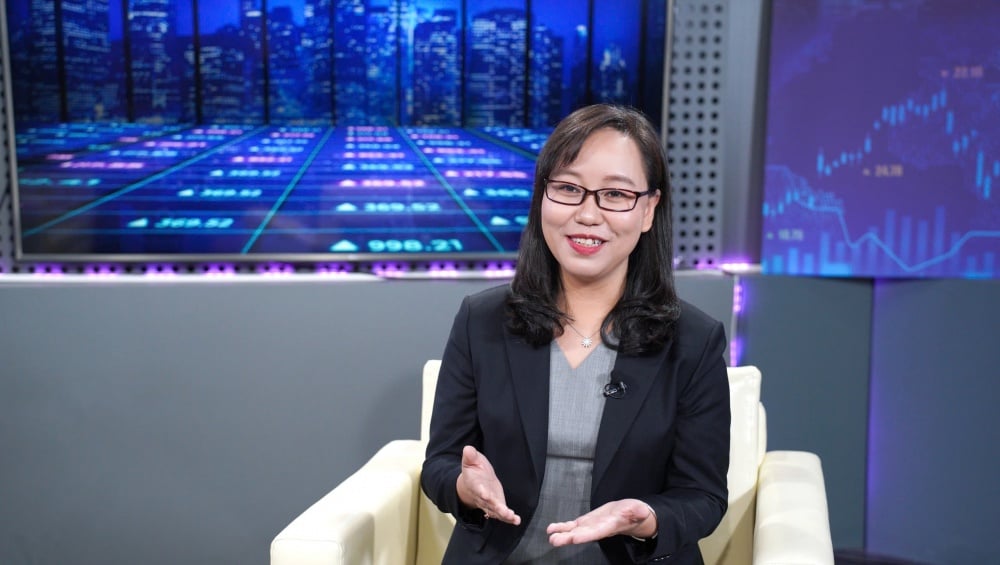 |
| Ms. Do Minh Trang |
Ms. Do Minh Trang, Director of Analysis Center, ACB Securities Company Limited (ACBS) emphasized the importance of prudence, long-term investment strategy, and confidence in Vietnam's economic strength, which is strengthened by strong administrative reform policies, to overcome current challenges.
Stock Market: Rational Reaction, Prolonged Uncertainty
Ms. Trang assessed that the VN-Index's reaction to the US tax announcement was reasonable and not excessive. From April 2 to April 9, 2025, the index plummeted from 1,317 points to 1,094 points, losing 223 points, equivalent to 16.9%. When the US announced a 90-day delay in imposing tariffs for negotiations, the market immediately hit the ceiling on April 10 and remained green, narrowing the decline to about 5.8%.
Compared to history, the VN-Index had fallen sharply by 20-25% in March 2020 due to the Covid-19 pandemic, in early 2022 when the Fed tightened monetary policy, or in October 2022 during the corporate bond crisis. This decline reflects the severity of the tariff issue, which is highly uncertain in the long term. The rapid recovery shows that investor sentiment has stabilized, but the market still has potential risks due to external factors that have not been completely resolved.
According to Ms. Trang, the global financial market is unlikely to achieve stability during President Donald Trump's four-year term. The policies being introduced in a rush, from tariffs to trade controls, could lead to currency and geopolitical tensions, increasing risks for emerging markets like Vietnam.
Before the trade tensions escalated, the World Bank and IMF forecast global economic growth of 2.7-3.3%, with the US at 2.3-2.7% and China at 4.5-4.6%. However, when the US-China trade war broke out, GDP growth of the world's two largest economies was at risk of falling, causing global GDP to fall by about 1%.
Goldman Sachs forecasts that the probability of a US recession increased from 35% to 45% before the US delayed tariffs, reflecting a serious level of uncertainty. Forecasting the current global economic scenario is a major challenge, requiring investors to be flexible and prepare carefully for worst-case scenarios.
Strong internal strength to deal with trade challenges
The GDP growth rate of nearly 7% in the first quarter of 2025 is a testament to the inherent strength of the Vietnamese economy, but the impact of global tariffs cannot be underestimated. With an open economy and a very high import-export/GDP ratio, Vietnam is heavily dependent on two main markets: imports from China account for about 38-40% of import turnover, and exports to the US account for 30% of export turnover. If the US and China are strongly affected by the trade war, import-export activities may be affected by up to 30-40% related to these two countries.
Compared to countries like Indonesia, Malaysia, India, and South America, higher taxes could cause FDI to shift, posing a major challenge to long-term growth.
It is proposed to utilize public investment, which currently accounts for about 10% of GDP, as a tool to offset the decline in imports, exports and FDI. Administrative reform policies in Resolution No. 76/2025/UBTVQH15, approved by the National Assembly Standing Committee on April 14, 2025, to streamline the apparatus and promote economic development are key factors. This Resolution aims to reduce the number of commune-level administrative units by 60-70% and merge provinces to expand development space, helping to improve management efficiency, optimize resources, and support large-scale public investment projects.
With these reforms and current economic strength, Ms. Do Minh Trang is optimistic that Vietnam can achieve GDP growth of about 6.5% in 2025, an encouraging figure amid global instability.
According to Ms. Trang, the stock market is expected to face many difficulties in the second quarter of 2025, when businesses take advantage of exporting goods, reducing imports of raw materials, suspending expansion investment, and delaying FDI disbursement while waiting for the results of tax negotiations. However, after the recovery period, the market will reach a state of psychological stability and supply-demand balance. Investors will shift to assessing the economic growth prospects of each country and business to make long-term decisions.
Under the baseline scenario, GDP would grow by 6.5-7%, with profits of listed companies, especially in the import-export and banking sectors, growing by 14-15%. This would create the premise for the VN-Index to increase by over 10% in 2025.
The prospect of an upgrade from FTSE Russell and the upcoming operation of the KRX system are also positive factors, but the outcome of tariff negotiations and the stability of the economy will determine the extent of the impact.
Be cautious, prioritize internal strength and long-term safety
Foreign investors are expected to continue net selling in the first half of Q2/2025 to increase cash holdings to cope with tax negotiations, hedge against exchange rate risks, and restructure their investment portfolios in a safer direction.
The possibility of upgrading the market, if feasible, will have to wait until the FTSE Russell review in September 2025, which is about 6 months away. ETFs will automatically allocate a portion of their capital to Vietnam when the upgrade is official, with an estimated capital flow of about 300-400 million USD.
However, active funds will consider more carefully, depending on the outcome of tax negotiations and macroeconomic factors. Increasing exchange rate pressure, especially when China devalues the yuan to support exports, makes it difficult for Vietnam to continue lowering interest rates, leaning towards maintaining low interest rates to stabilize the economy.
Ms. Trang emphasized the role of domestic individual investors, who have proven their strength in previous periods of volatility. With the VN-Index valuation at an attractive level, near the bottom of the past 5 years, this force will lead the market in the short term. Vietnam's economic strength, reinforced by reform policies such as Resolution No. 76/2025/UBTVQH15, is a decisive factor in attracting long-term and sustainable capital flows. This Resolution not only streamlines the administrative apparatus, but also promotes decentralization, delegation of authority, digital transformation application, and improving the quality of the staff, creating a solid foundation for economic growth and the stock market.
According to Ms. Trang, individual investors should not trade or use margin due to the high risk of price fluctuations. Asset allocation strategies become more important than predicting the actions of international policies. Accordingly, priority should be given to assets that increase in price when recession risks occur, such as increasing the proportion of cash, while balancing and reducing the proportion of stocks affected by the trade war.
If tariffs are unfavorable, the export, industrial real estate, freight transport, and seaport sectors will be strongly affected. Investors should focus on sectors that have resilience in a stable economic context, such as banking, basic construction materials serving the domestic market, public investment infrastructure construction, electricity and water with stable cash flow and good dividends, as well as the technology sector.
The criteria for selecting stocks is to target businesses that do not have large foreign currency debts, do not depend heavily on imported raw materials, and have a strong domestic consumption market to minimize risks from international fluctuations.
In an uncertain environment, prudence and a long-term investment strategy are key to capitalizing on opportunities from Vietnam’s economic strength. With strong administrative reforms and prospects for market upgrade, Vietnam has not only weathered the trade storm but also affirmed its position on the global investment map.
Source: https://thoibaonganhang.vn/dau-tu-an-toan-giua-song-gio-thuong-mai-162836.html



![[Photo] Close-up of Tang Long Bridge, Thu Duc City after repairing rutting](https://vphoto.vietnam.vn/thumb/1200x675/vietnam/resource/IMAGE/2025/5/19/086736d9d11f43198f5bd8d78df9bd41)
![[Photo] Panorama of the Opening Ceremony of the 43rd Nhan Dan Newspaper National Table Tennis Championship](https://vphoto.vietnam.vn/thumb/1200x675/vietnam/resource/IMAGE/2025/5/19/5e22950340b941309280448198bcf1d9)
![[Photo] President Luong Cuong presents the 40-year Party membership badge to Chief of the Office of the President Le Khanh Hai](https://vphoto.vietnam.vn/thumb/1200x675/vietnam/resource/IMAGE/2025/5/19/a22bc55dd7bf4a2ab7e3958d32282c15)

![[Photo] General Secretary To Lam attends the conference to review 10 years of implementing Directive No. 05 of the Politburo and evaluate the results of implementing Regulation No. 09 of the Central Public Security Party Committee.](https://vphoto.vietnam.vn/thumb/1200x675/vietnam/resource/IMAGE/2025/5/19/2f44458c655a4403acd7929dbbfa5039)
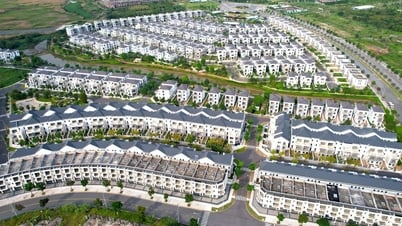















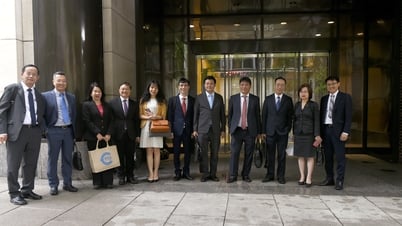
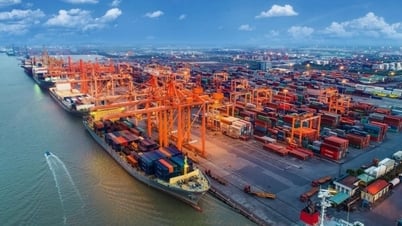


![[Photo] Prime Minister Pham Minh Chinh inspects the progress of the National Exhibition and Fair Center project](https://vphoto.vietnam.vn/thumb/1200x675/vietnam/resource/IMAGE/2025/5/19/35189ac8807140d897ad2b7d2583fbae)












































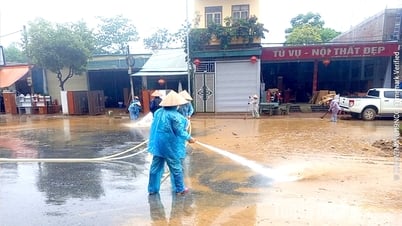

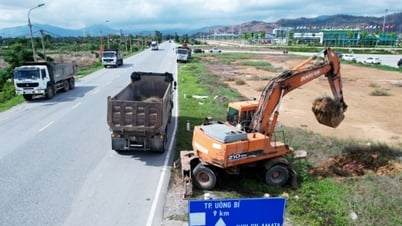

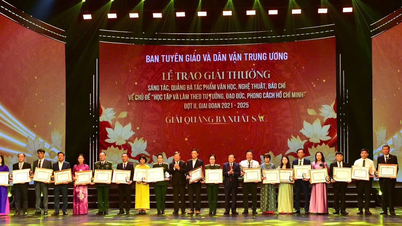











![[VIDEO] - Enhancing the value of Quang Nam OCOP products through trade connections](https://vphoto.vietnam.vn/thumb/402x226/vietnam/resource/IMAGE/2025/5/17/5be5b5fff1f14914986fad159097a677)



Comment (0)